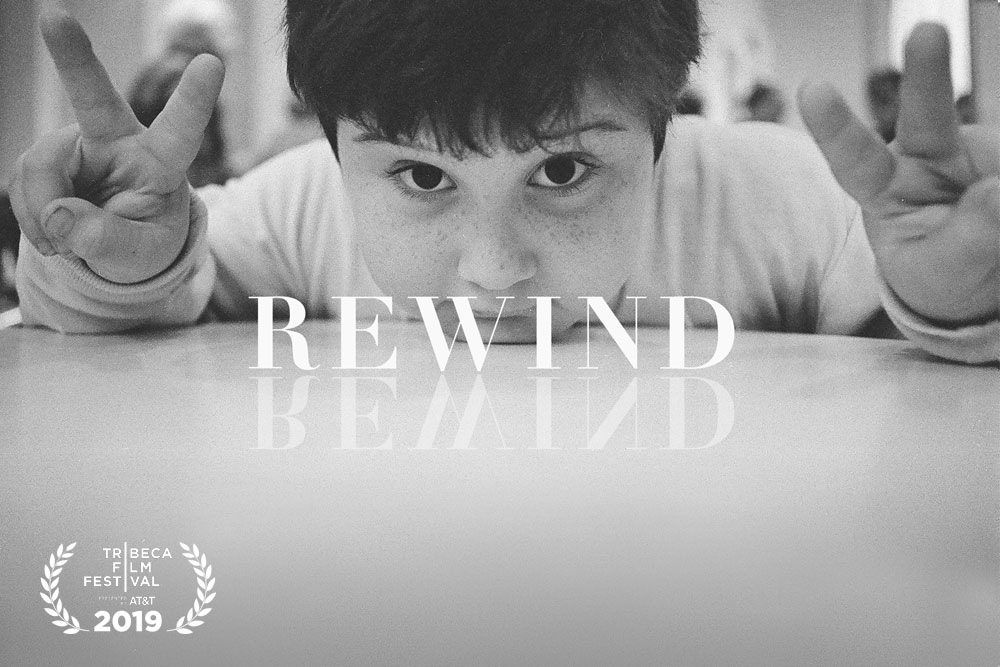Sasha Joseph Neulinger’s “Rewind” is a deeply personal, revealing, and unforgettable piece of filmmaking. It contains revelations as harrowing as those chronicled in HBO’s “Leaving Neverland,” but imagine if the interview subjects in that film were directing their own documentaries and using their own home movies to tell their stories. There’s a raw immediacy to “Rewind” that may be too much for abuse survivors, and a personal approach that makes it stand out among other documentaries about abuse. Most of all, Neulinger’s courageous documentary transcends his own specific story to become something greater about healing, cycles of abuse, and how closely we have to listen to our children and watch their behavior in order to protect them.
Watching Sasha’s home movies, you can see when said behavior started to change, when Sasha went from a playful child to an angry one. Now an adult, he tells stories of being enraged all the time and wanting to kill himself, but not really knowing why. Abuse warps and rewires a child’s brain. They have no idea how to verbalize what’s happening to them. They don’t know why they’re angry. They don’t know why they want to die. They’re broken. And Sasha’s parents didn’t realize how broken he was until it was too late, until multiple people in his family had sexually abused him. Sasha only came forward really as a way to protect his sister from suffering the same fate, revealing a family history of sexual abuse that is simply jaw-dropping.
Of course, court records and news stories long ago made Sasha’s trauma public knowledge, but it takes a different kind of courage to turn that into a documentary film. Sasha was clearly a film kid from a young age, hamming it up in front of the camera, and “Rewind” achieves greatness because it feels like not just a recording of events but a part of a healing process that began years ago. Neulinger’s interviews with his mother, sister and father reveal people who are still processing the abject horror of what happened to them, and likely will be their entire lives. But the act of filmmaking itself becomes a part of the process, a way for them to express things they haven’t said to therapists, attorneys, or even themselves before now.
Sasha was a brave kid when he testified against his abuser, but there’s an understated bravery here now that he’s an adult that’s also remarkable. “Rewind” feels like a statement about how the only way to stop cycles of abuse from being handed down from generation to generation is to put it all on the table— ask for help, tell people what’s happening, be open with each other about our traumas. Few people have the outlets like Neulinger does to put it all on film and play it at a festival, but “Rewind” should be seen as a call to action not just for survivors. It asks people to listen to those around them and be there when we are needed. Look closely. Pay attention. Speak up. There are way too many Sashas out there who don’t have their stories up on the screen. “Rewind” is a film that doesn’t just empower victims but reminds those of us lucky enough to have never been abused to be there when we are needed to listen, to help, and to heal.












